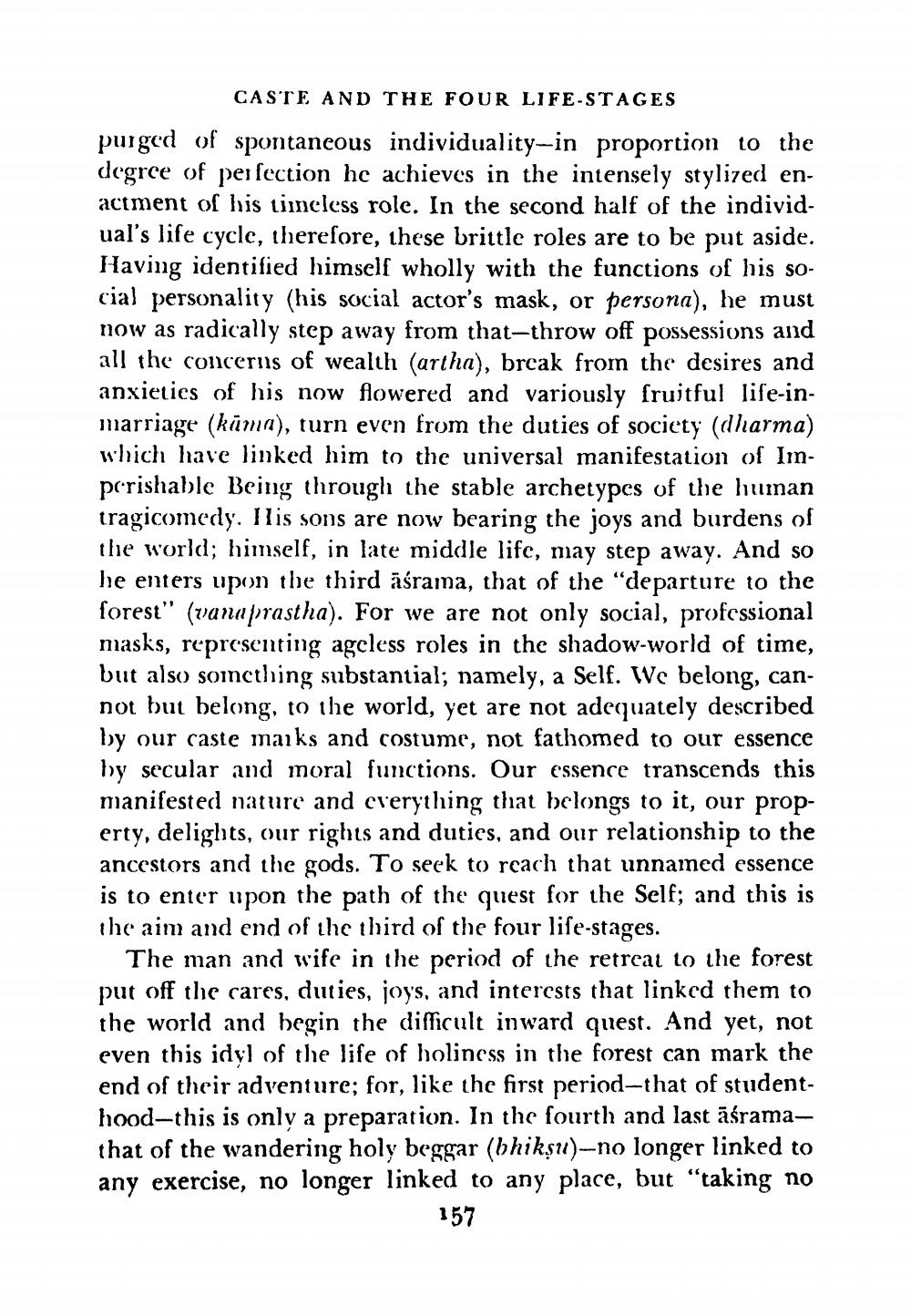________________
CASTE AND THE FOUR LIFE-STAGES purged of spontaneous individuality-in proportion to the degree of perfection he achieves in the intensely stylized enactment of his lineless role. In the second half of the individual's life cycle, therefore, these brittle roles are to be put aside. Having identified himself wholly with the functions of his social personality (his social actor's mask, or persona), he must now as radically step away from that-throw off possessions and all the concerns of wealth (artha), break from the desires and anxieties of his now flowered and variously fruitful life-inmarriage (kūma), turn even from the duties of society (dharma) which have linked him to the universal manifestation of Imperishable Being through the stable archetypes of the human tragicomedy. His sons are now bearing the joys and burdens of the world; himself, in late middle life, may step away. And so he enters upon the third āśrama, that of the "departure to the forest" (vanaprastha). For we are not only social, professional masks, representing ageless roles in the shadow-world of time, but also something substantial; namely, a Self. We belong, cannot but belong, to the world, yet are not adequately described by our caste marks and costume, not fathomed to our essence by secular and moral functions. Our essence transcends this manifested nature and everything that belongs to it, our property, delights, our rights and duties, and our relationship to the ancestors and the gods. To seek to reach that unnamed essence is to enter upon the path of the quest for the Self; and this is The aim and end of the third of the four life-stages.
The man and wife in the period of the retreat to the forest put off the cares, duties, joys, and interests that linked them to the world and begin the difficult inward quest. And yet, not even this idyl of the life of holiness in the forest can mark the end of their adventure; for, like the first period-that of studenthood-this is only a preparation. In the fourth and last āśramathat of the wandering holy beggar (bhikṣu)--no longer linked to any exercise, no longer linked to any place, but "taking no
157




